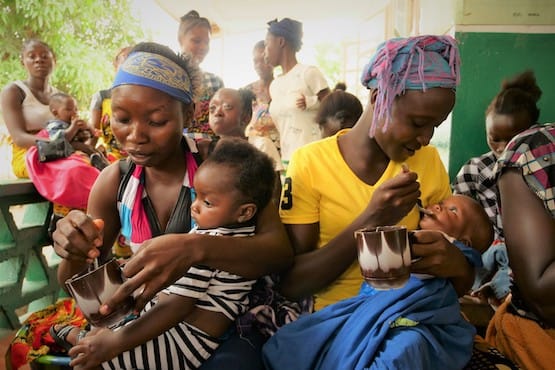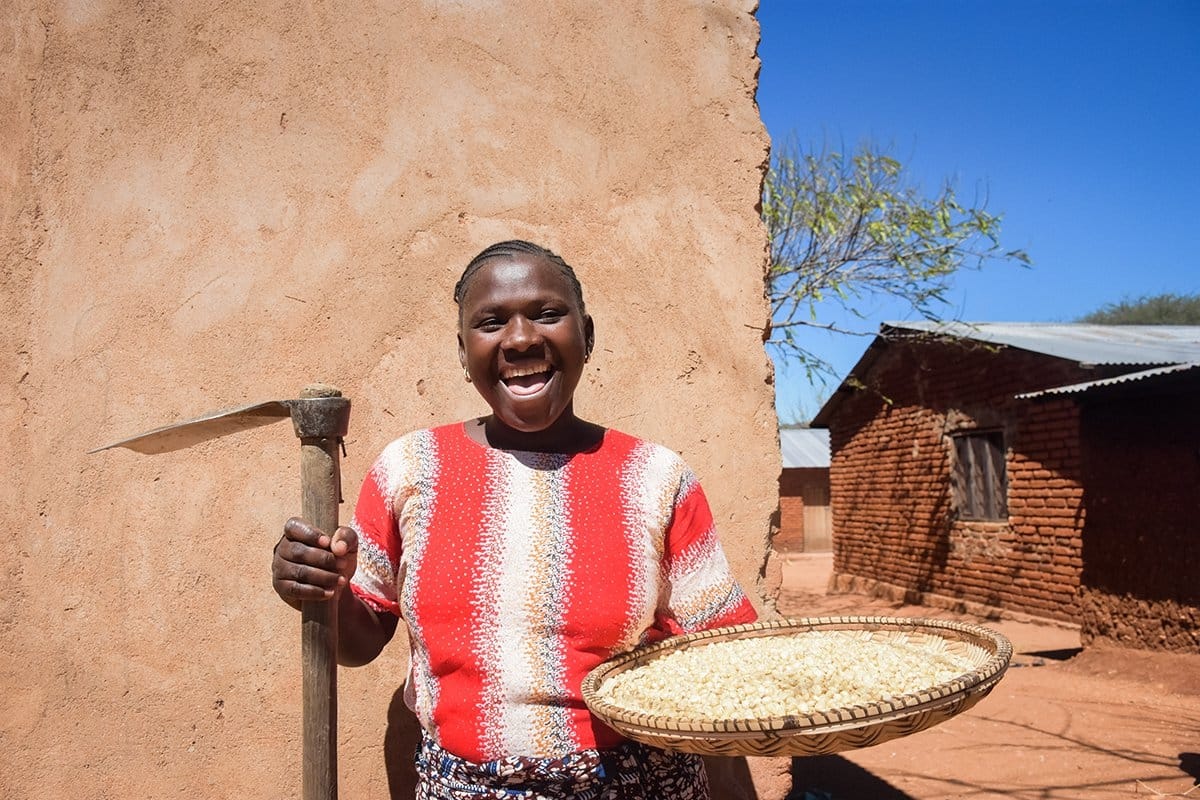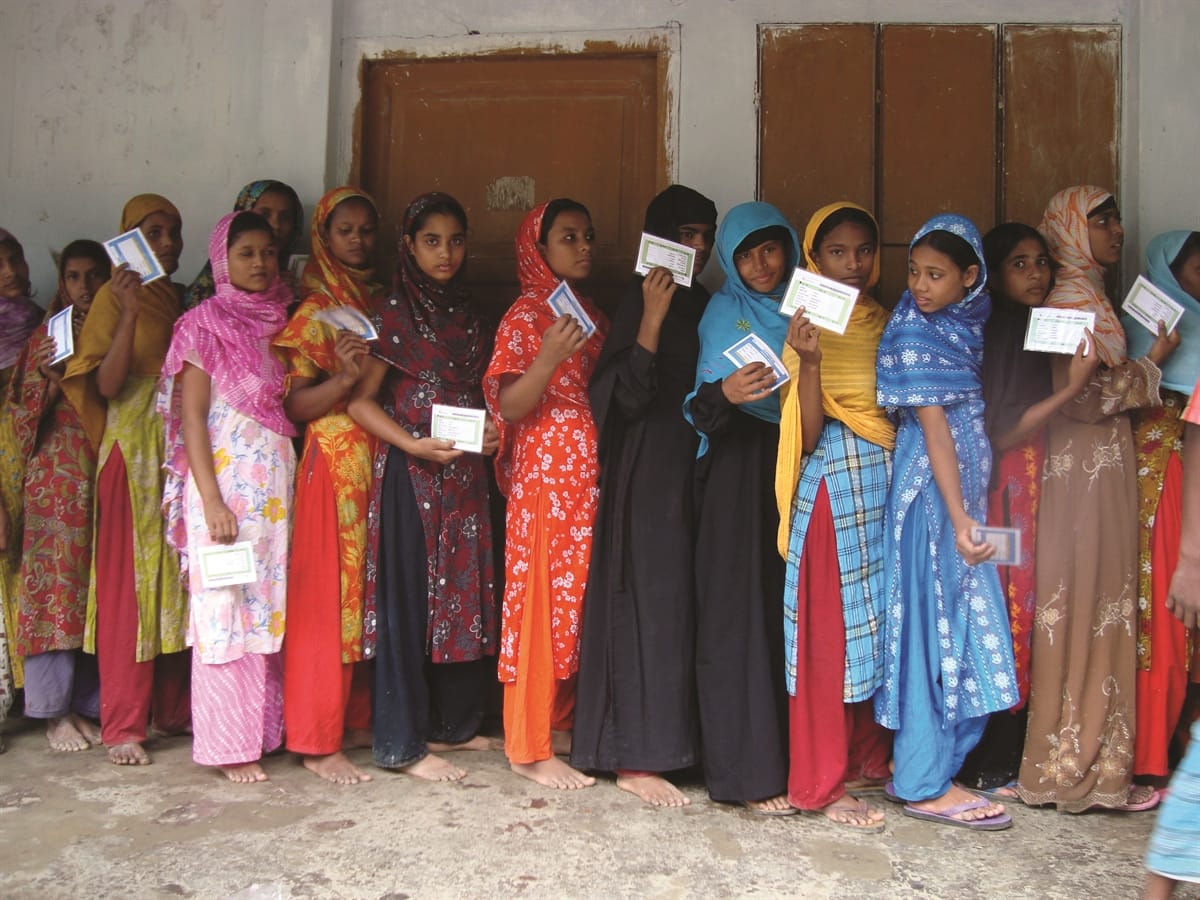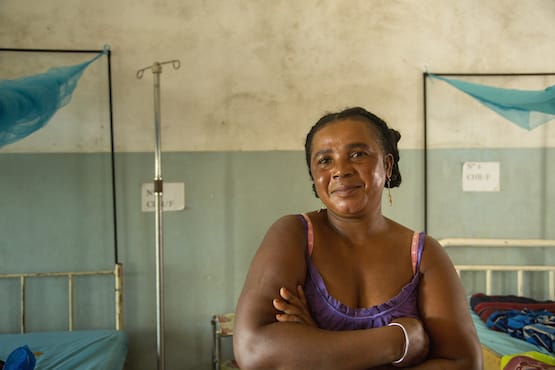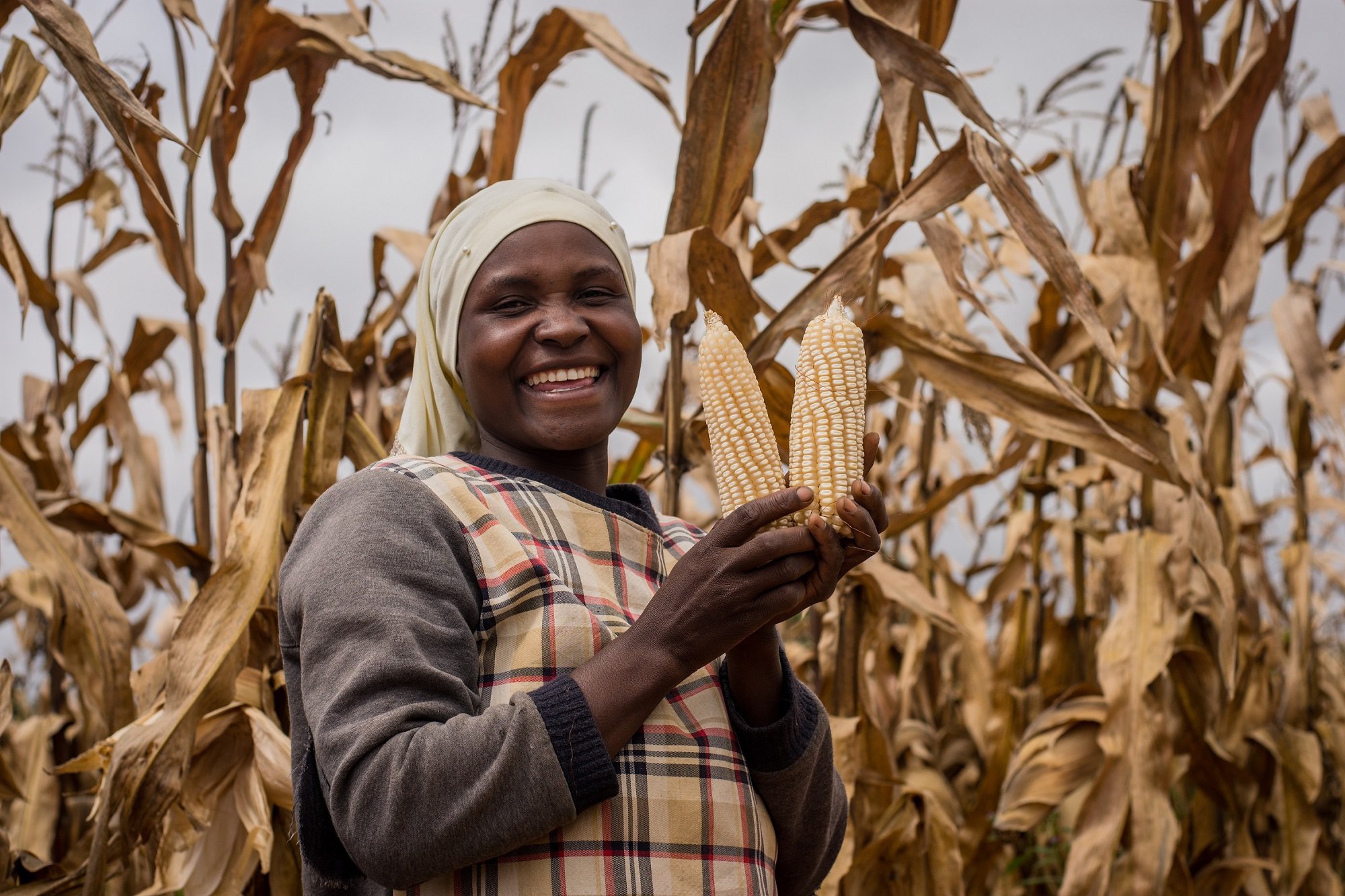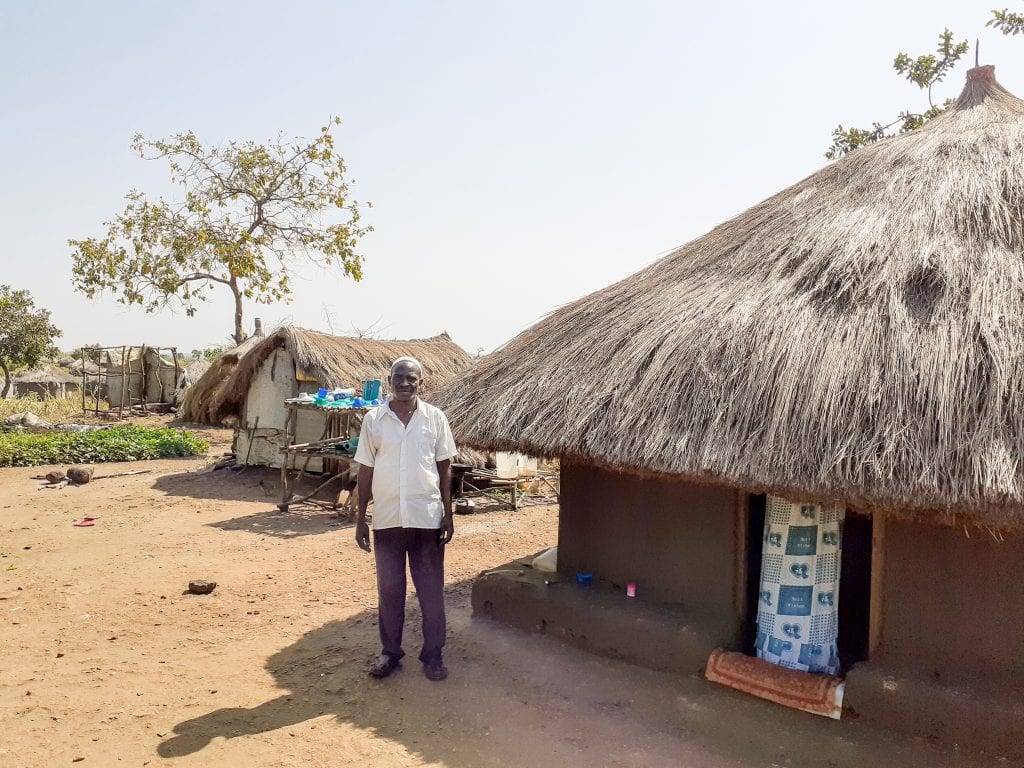Ruth Fertig, Multimedia Content Producer, Helen Keller International
It’s a special service day in Gbondapi town, Sierra Leone, and that means the long wooden benches in the foyer of the health center are filled exclusively with mothers and their young children. More people have turned out than there are seats, so a few perch instead on the concrete ledge surrounding the clinic. Every few minutes, a street vendor stops by to hawk his or her wares with the captive audience, who nurse crying children, hold sleeping ones, wrangle squirming ones, and wait for their turn to see the health team. 
With support from Helen Keller International, the clinic offers these special service days on a weekly basis, and it’s the ideal time for women to bring their children for well-baby and well-child visits. In addition to the vaccinations, drugs, check-ups, and other medical services that the women receive for themselves and their children free of charge, on these special days they also get the added perk of porridge.
A steaming vat of water boils on a small grill next to the clinic wall, fanned by a woman in a black crocheted beret. She calls the women over in small groups and shows them how to mix a few tablespoons of Pikin Mix roasted flour (made from locally sourced sorghum, sesame, and pigeon peas) into cupfuls of boiling water until it forms a thick porridge. A free, hearty meal for children in families with very little income to buy food, the porridge is a powerful incentive for the women to come to the clinic on a regular basis. The cooking demonstration also gives them the knowledge they need to make the nutritious meal at home.
As the mothers ladle spoonfuls of warm porridge into their children’s mouths, a nurse in a Pepto-Bismol pink uniform calls out names one at a time. Women and children then begin moving through a healthcare conveyor belt of sorts. At the first station, children are weighed in a big plastic tub hanging from ropes affixed to a scale; at the next, they are measured. If these results indicate that a child is malnourished, the nurse refers the child either to an outpatient treatment program with weekly monitoring, or to an inpatient therapeutic treatment program if the child has other medical complications and her malnutrition is severe.
 After being weighed and measured, the mothers and their children circle back to the nurse’s table, where they learn about optimal infant and young child feeding practices like complementary feeding – that is, nourishing infants from six months to two years of age with solid foods in addition to breastmilk – and how to diversify and integrate nutritious local foods into both the children and the mothers’ diets.
After being weighed and measured, the mothers and their children circle back to the nurse’s table, where they learn about optimal infant and young child feeding practices like complementary feeding – that is, nourishing infants from six months to two years of age with solid foods in addition to breastmilk – and how to diversify and integrate nutritious local foods into both the children and the mothers’ diets.
The next stop is an exam room, in which a health worker looks through the child’s register, determines the vaccinations, vitamin A supplementation (VAS), deworming and other drugs the child is due for, and administers them accordingly. Well-visits are called “six monthly contact points” because many of the routine services for young children follow a six-month cycle. For example, a few drops of Vitamin A, a crucial immunity- and vision-building vitamin, are given as a liquid supplement twice per year from the time a child is six months old to the time he or she is five. HKI currently supports VAS on a routine basis in seven of Sierra Leone’s 14 districts, and will scale up to the other seven districts over the next year and a half.
In Sierra Leone, where vitamin A deficiency is common due to a lack of dietary diversity, mothers have been sensitized to how important VAS is, along with other health interventions. That’s in large part a result of outreach work that HKI supports in partnership with the government as well as community and religious leaders. The message about where and when to get services – and how crucial they are to a child’s well-being – is spread through church and mosque sermons, community meetings, radio programs, videos, and a host of other media.
“When women in Sierra Leone come to health centers, they ask for Vitamin A by name. They appreciate how important it is for their children’s health,” says Helen Keller International Country Director for Sierra Leone, Dr. Mary Hodges.

Women in Sierra Leone are less likely, however, to take care of their own health, particularly their reproductive health. Since the target population for family planning, women of childbearing age, has a large overlap with the population who bring their children in for VAS, HKI realized there was an opportunity to reach more women by coupling family planning with routine VAS distribution. Now, when mothers come in to get their children a biannual Vitamin A dose, they leave with comprehensive counseling about birth control options available to them free of charge.
Janet Moriba benefited from these services at the clinic. A 17-year-old mother of a baby girl, she dropped out of high school when she became pregnant. (Visibly pregnant girls are not allowed to attend school in Sierra Leone.) Janet wants to re-enroll when her baby is older, and she wants to complete her studies. Both Janet and her baby girl left the clinic with the care they needed – vaccinations and Vitamin A to help the baby grow healthy and strong, and birth control to help Janet prevent an unplanned pregnancy. It turns out that well-visits for children can help mothers reach their full potential, too.
You can read more about HKI’s vitamin A supplementation program here, and support their work here.
